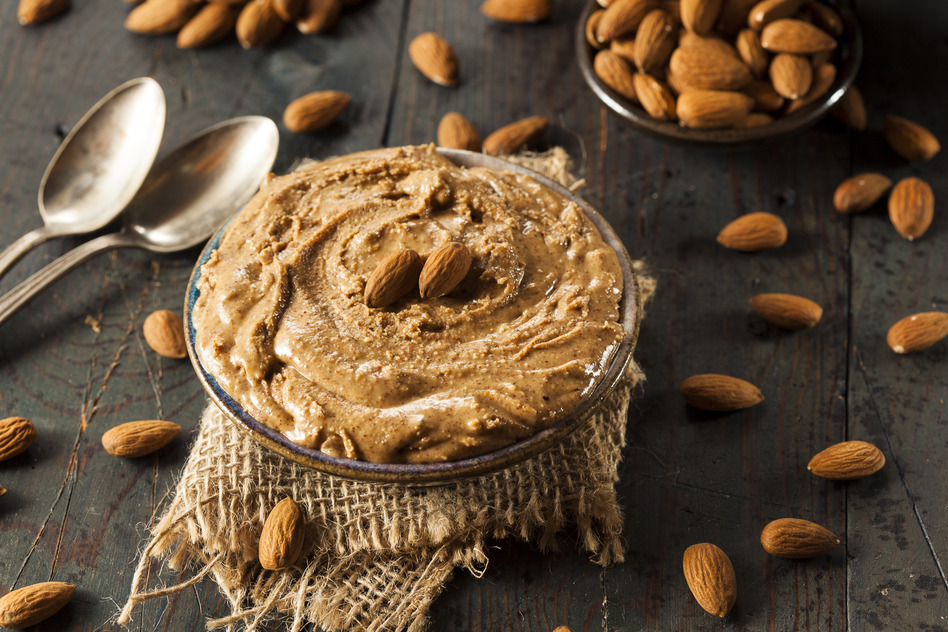
Nut and seed butters come in a prodigious variety of types, with about any nut you want to grind into creamy goodness being available. Almond, cashew, peanut, sesame, soy or sunflower butters are most familiar to us, but food manufacturers are offering more creative varieties such as almond-pecan, Brazil, or apricot kernel almond.
Nuts are excellent natural sources of the immunity-boosting antioxidant vitamin E, but they can be unhealthy when mishandled. Here are a few things to consider when purchasing a nut or seed butter for your eating enjoyment:
Research your nut and seed products
The only guaranteed way to have the freshest nut/seed butter is to shell and grind your own, but there are products on your grocer’s shelf that are the next best thing. You may have been used to value shopping, especially for peanut butter to go on the kid’s sandwiches, but spending the extra change on quality nut/seed butters is more important than you would imagine. Find out how some companies, particularly all natural and organic suppliers, handle their products prior to packaging and shipping.
If you have a favorite company brand, you can contact them with your questions or check their website for information regarding specific handling of their products. MaraNatha produces batch made nut and seed butters and provides detailed FAQ’s about them. Follow this link to view their web page: http://bit.ly/1AX9uQo
Proper nut storage
If you decide to purchase a nut grinder for making fresh butters, you will probably be buying nuts and seeds in bulk. They are very fragile food as they become rancid and lose nutrients immediately in the presence of oxygen after they are hulled or shelled. It is best to vacuum pack extras that will not be used right away to prevent rancidity. When the oils in nuts and seeds go rancid, they can present health complaints such as irritating your stomach lining and intestines, and producing gall bladder and liver malfunctions.
Nuts in a shell last up to one year. Store hulled nuts and seeds in dark jars in a cold place because heat and light speed up oxidation. Do not store them in plastic because oil-rich foods combine with plastic and form plasticides. If you buy your seed and nut butters, buy the ones packaged in glass jars.
Digestion and allergies
If you have sensitive digestion, it’s best to select butters made from roasted seeds and nuts. Roasting can also reduce the effects of rancidity. Eat them in smaller amounts to avoid aggravating an existing digestive issue. If you know you are prone to some food allergies, never assume what nuts or seeds you may be allergic to! Either verify this at your doctor’s office or review the ingredients of products and recipes carefully to see that the nut butter you buy doesn’t have unexpected ingredients.
Many nuts, many uses
Consuming nut and seed butters as a wholesome and natural food is made easy by their versatility. They can be eaten as a condiment with fruit and vegetables or used in recipes.
Here’s a vegan almond butter cookie recipe I found that is gluten, dairy and soy-free, making this a treat that individuals with common allergies can enjoy. As with anything else, enjoy these nutrient-packed yummies in moderation!
Gluten-free Almond Butter Cookies
Author: Amie Valpone
Serves 12
Ingredients
• 1 tsp. almond butter
• 3 large ripe bananas, peeled and mashed
• 1 tsp. almond extract
• 1 cup cooked quinoa
• 1 cup quinoa flakes
• ¼ tsp. sea salt
• ½ cup coconut sugar
• ½ tsp. cocoa powder
• ¼ cup crushed almonds
• ¼ cup cacao nibs
Instructions
1. Preheat oven to 375 degrees F.
2. In a large mixing bowl, combine almond butter, bananas, almond extract and coconut sugar. Add cooked quinoa, quinoa flakes and sea salt; mix well then add in cocoa powder, crushed almonds and cacao nibs. Using a teaspoon, portion golf ball sized cookies onto a baking sheet.
3. Bake for 20-25 minutes or until golden brown.
4. Remove from oven; set aside to cool before serving.
Note: These cookies are fragile as they are dairy and gluten-free. They will become too soft if stored in an airtight container at room temperature. I would suggest storing them on a plate at room temperature for a couple of days (as that’s usually how long they will last anyway) or in the fridge/freezer for prolonged shelf life and better texture.

